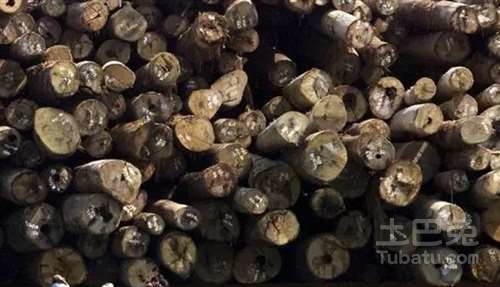The second largest country in Africa, the Democratic Republic of the Congo, produces precious ebony (ebony), African teak (bean pea), golden wood (green mulberry), chicken wing wood, rosewood and dye rosewood. The country's high-quality dye sandalwood has been supplied to the Chinese market in large quantities in recent years and has become one of the main export destinations of high-quality redwood in Africa. However, the country's current political situation is very unstable, and some exports of rosewood and dye rosewood have already appeared difficult, and the impact on China's domestic market is still under further observation.
  

The Mozambican authorities in Africa have decided to completely ban the export of black and yellow sandalwood (Purple Tan) wood, lobular red sandalwood logs and plates from East Africa from December 31, 2016. Since 2017, these dark red precious hardwoods from Mozambique are likely to be out of stock.
At the beginning of 2017, Nigeria has stopped issuing CITES licenses because illegal timber harvesting in the country is currently uncontrollable, and the exploitation of forest resources and the management of wild species of flora and fauna They are all in an unsustainable state of operation. The Minister of the Environment said that the work of no longer issuing CITES licenses has started in January 2017 and will last at least until March until the government seeks a secure solution.
The Gambia also issued a decree prohibiting the import, export and transportation of timber!! The Government of the Government of Forests, Environment, Climate Change and Natural Resources, led by Gambian President Barrow, decided to suspend timber in the country under Article 16 of Article 16 of the Forest Law. Import and export and transportation (including logs), and the subsequent impact needs further observation.
According to this request, the Gambia Tax Administration, the Port Authority and other relevant agencies have been notified to stop issuing various types of permit documents in order to ensure the circulation of legal timber. The news about the timber ban has been notified to all local governments, timber merchants, transporters and security agencies in the Gambia. At present, the media is concerned about the implementation of this new regulation by the police of the country, and whether it can guarantee the benefits of timber trading for the people.
According to the government ban, all ports and shipping points are not allowed to transport and export timber, and officials from various forest and security departments can confiscate any motor vehicles that carry timber.
Then, the Zambian government also announced that it would stop the export of logs since February 2017, which of course includes the most concerned blood sand. Zambia’s Minister of Lands and Natural Resources, Jean Kapata, said that only processed wood could be allowed to be exported, based on Decree No. 94 of 2015, after which the Minister again announced 100 km outside of all reservations. The acquisition of all types of logs is also prohibited, and any motor vehicles carrying logs will be confiscated within this range, and the Zambian Transport and Safety Department is required to cooperate with this decision to ensure enforcement.
In June 2013, the newly revised Convention on International Trade in Endangered Species of Wild Fauna and Flora came into effect, and the import and export of seven species of redwood species were restricted. Sian rosewood, Central American Dalbergia, Dwarf Dalbergia, Belize Dalbergia, Lu Wood, such as black Dalbergia, which was originally classified as a third-grade endangered species, was upgraded to a secondary endangered species.
From September to October 2016, the 17th Conference of the Parties to the Convention on International Trade in Endangered Species of Wild Fauna and Flora (CITES) was held in Johannesburg, South Africa, and voted through the entire Dalbergia wood, Hedgehog rosewood and was considered a substitute for mahogany. The bus is included in the proposal of Appendix II of the Convention.
On November 29, 2016, the National Endangered Office issued the “Notice on Doing a Good Job in the Implementation of the Implementation of the Convention on the Implementation of Wild Plant Species in the Appendixâ€, and confirmed the amendments to the Appendix adopted by the 17th Conference of the Parties since January 2017. Effective from the date of implementation.
Many countries in Africa have issued bans to protect tree species. Benin, Côte d'Ivoire, Guinea-Bissau, Nigeria, Mali and other West African countries have issued bans, including more than 30 kinds of red hardwood. Some bans can be traced back to decades. Many bans are regularly Update.
This means that the timber export in Africa will be upgraded in the future, and the rosewood market will continue to heat up.
Body Suit Lingerie,Sexy Lace Body Suit,Tops Tees And Blouses,Lace One Piece Bodysuit
Hun Yuan Ya Lian Wan Jia Dian Zi Shang Wu You Xian Ze Ren Gong Si , https://www.ylwjastragalus.com